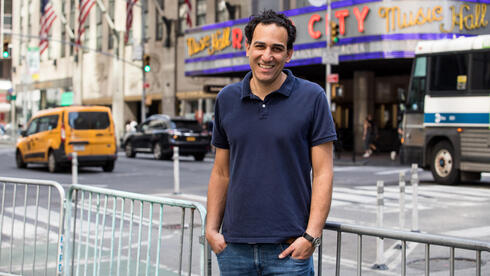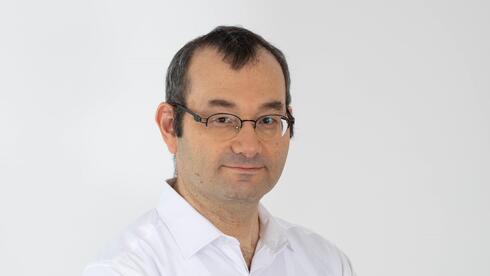
Opinion
Are down rounds the new layoffs?
"With 2023 shaping up to be the year of down rounds, what is the potential impact on the Israeli tech ecosystem, and how can founders avoid being part of this trend?" writes Eyal Bino, Founding Partner of 97212 Ventures
This is not a secret. Over the past year, Israeli startups have hit a rough patch when it comes to raising capital, and this is across all stages. Despite having a strong reputation for producing highly successful startups, Israeli entrepreneurs are finding it increasingly difficult to secure funding, and many are struggling to keep their businesses afloat.
During the first quarter of 2023, Israeli startups raised $1.72 billion in 105 deals, a drop of 70% from the first quarter of 2022, according to the latest IVC-Leumi Tech report for Q1 2022. The data doesn’t lie, and is a reflection of the market.
When taking a closer look at the report, we see a new trend: down rounds are becoming more common as founders agree to unfavorable funding terms in order to keep their companies alive. As a result, and with a major focus on becoming more efficient, startups are combining raising a round with laying off employees, so that they can become cash flow positive and ultimately have the choice of not needing to raise a new round in the future, or raise at much better terms.
If there is a silver lining to these challenges, it is that companies are becoming more productive and independent.
What does the effect of down rounds mean for startups, and Israeli startups in particular?
Down rounds today
So, what exactly is a down round?
According to Carta, a down round happens “when a company raises a financing round of venture capital funding and the pre-money valuation of the company is lower than the post-money valuation of the previous round. Down rounds are different from bridge rounds, which help founders extend their last round of fundraising.”
Once there's a down round, typically founders' equity gets crushed (or at the very least gets smaller) and there's even more of a focus on efficiency which leads to layoffs.
Lately, this has been a topic of discussion in the New York venture community. I recently attended the RTP Global Founder Summit, where the current state of fundraising had been one of the biggest topics of debate between VCs and founders. At the summit, Matt Turck, Partner at NYC’s First Mark Capital, stated that “down rounds are the new layoffs”, pointing to the fact these actions are being done in parallel, even if the media doesn’t report it.
Hold on... down rounds and layoffs at the same time?! What? Just imagine saying this in the midst of the crazy days of 2021, which seems like decades ago at this point.
Pitchbook’s recent VC Valuation Report states that “The proportion of flat and down rounds as a share of all rounds completed grew for the fourth consecutive quarter, representing 7.5% of all rounds in Q1 2023, which is roughly 5.7% higher than Q1 2022.”
Furthermore, “while elevated, this is likely the calm before the storm as many startups that face the risk of raising equity capital at a stagnant or reduced valuation are choosing to delay their return to market in hopes that the valuation environment will become more hospitable.”
The impact on Israeli startups’ fundraising
With 2023 shaping up to be the year of down rounds, what is the potential impact on the Israeli tech ecosystem, and how can founders avoid being part of this trend? This is a loaded question.
First of all, in a world where flat rounds are the new up rounds, founders need to be realistic with their valuation expectations. There are no more crazy multiples on revenue, as 10X-15X on current revenue is becoming the norm for companies with good performance.
For companies that are growing but at a slower pace, the most common alternative to raising a proper round is to raise an extension round, which is essentially done at the same valuation as the last round. This enables companies to extend their runway and increase their market traction so they become more marketable when raising the next round.
The problem? Many companies already used that “card” and now face a major decision: “are we ready and able to raise a round at a higher valuation to continue growing the business, or should we get ready to raise a down round and lay off people?”
On the other side of this, VC fund managers looking at new investment opportunities also have some major decisions to make. On the one hand, valuations are much more attractive and this is a very good time to invest. On the other hand, many don’t want to be associated with messy cap tables and down rounds, as this not only has a financial impact on startup companies, but also a psychological one.
Can founders who now have less equity in the companies they’ve built with so much effort maintain the same level of energy and hunger as they did before? Can companies be more efficient not just with how they spend their money, but also with growing the business after a down round?
For many, it’s also a question of where they believe the market will be in 12-24 months, and how will we bounce back from the current downturn.
In the current market, fundraising is extremely challenging and is becoming more of a science than an art as VCs are extremely careful with their investment decisions. Focusing on efficiency and showing a path for profitability are the best ways to avoid a down round, and ultimately come out of this market stronger than before.
Eyal Bino is the Founding Partner of 97212 Ventures, a NY-based seed fund














